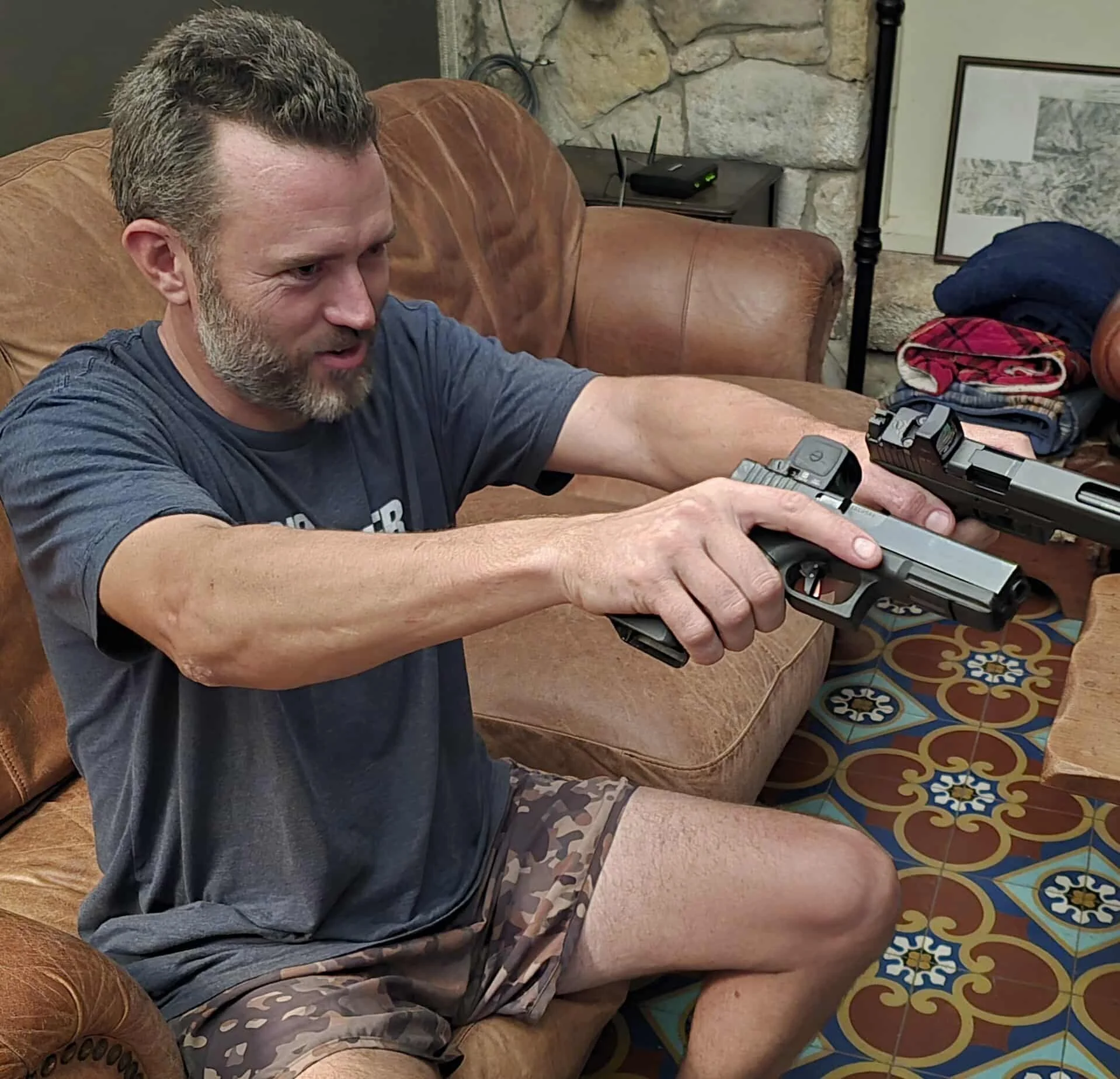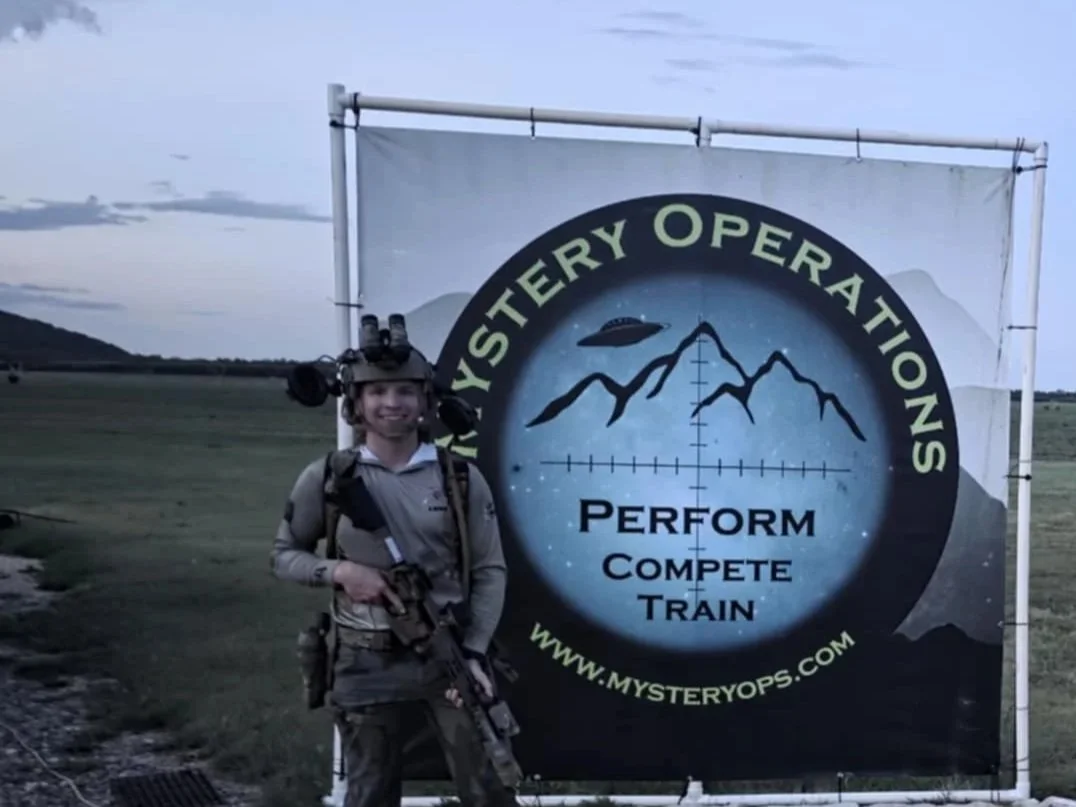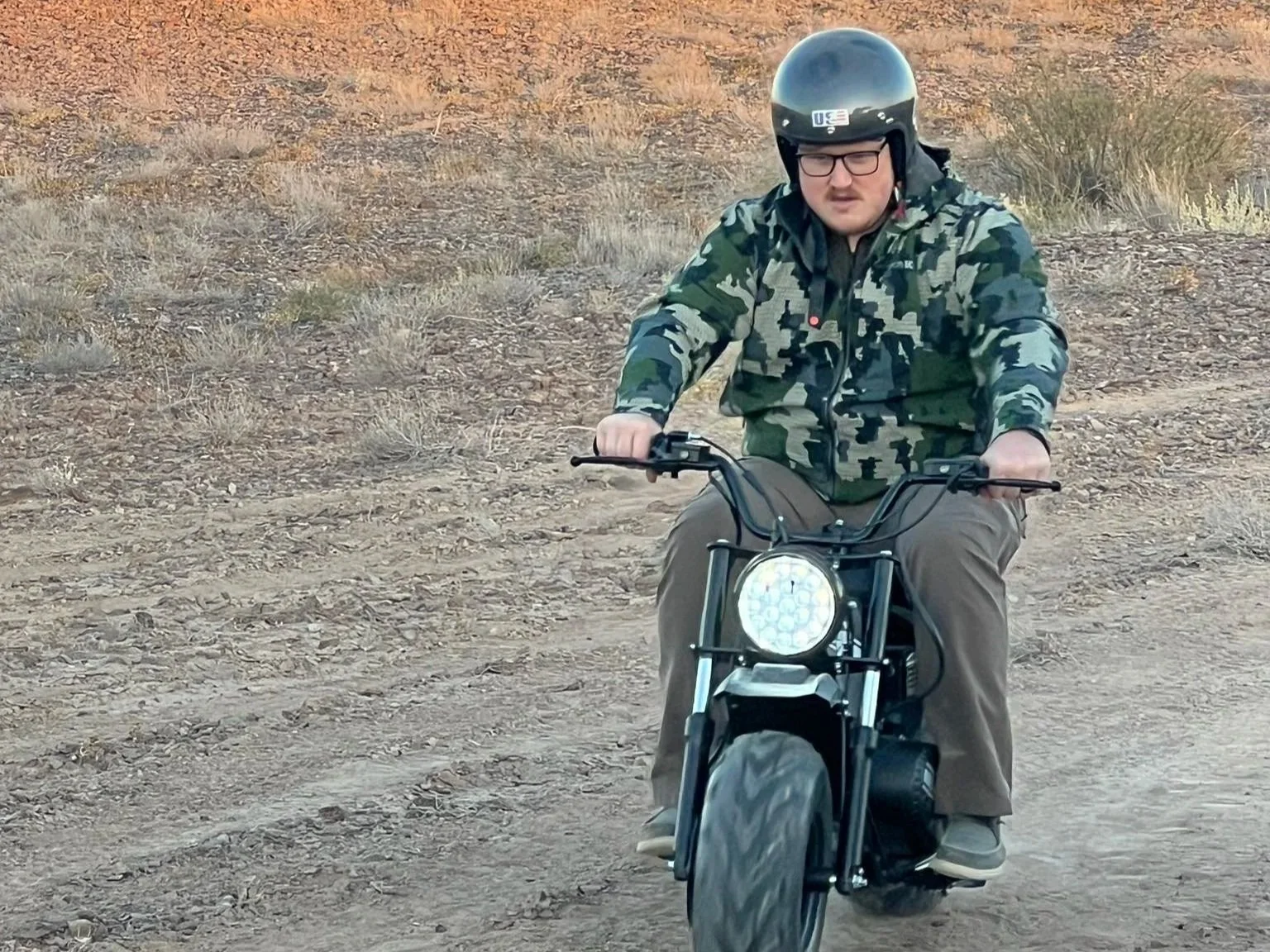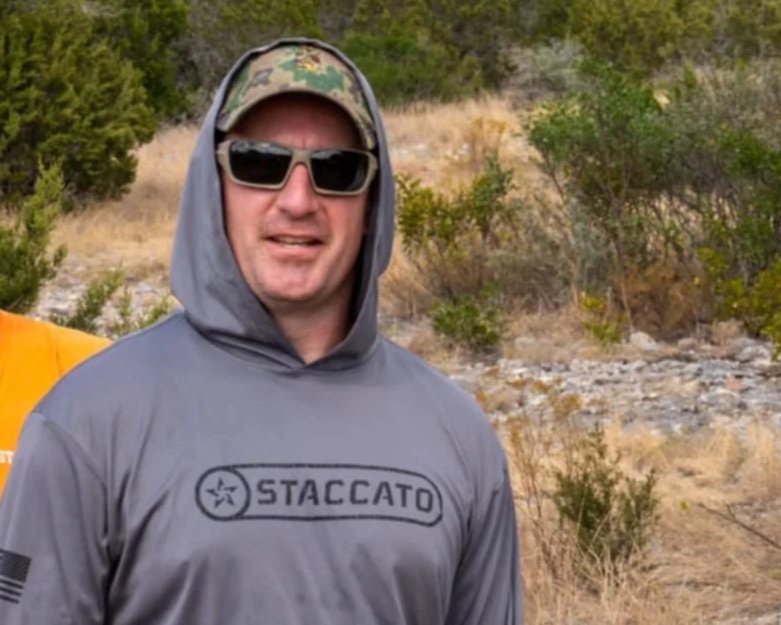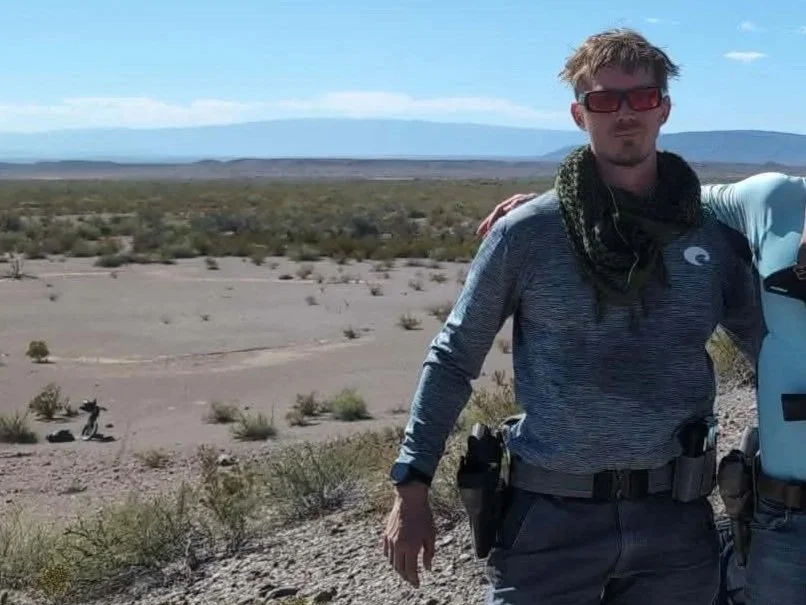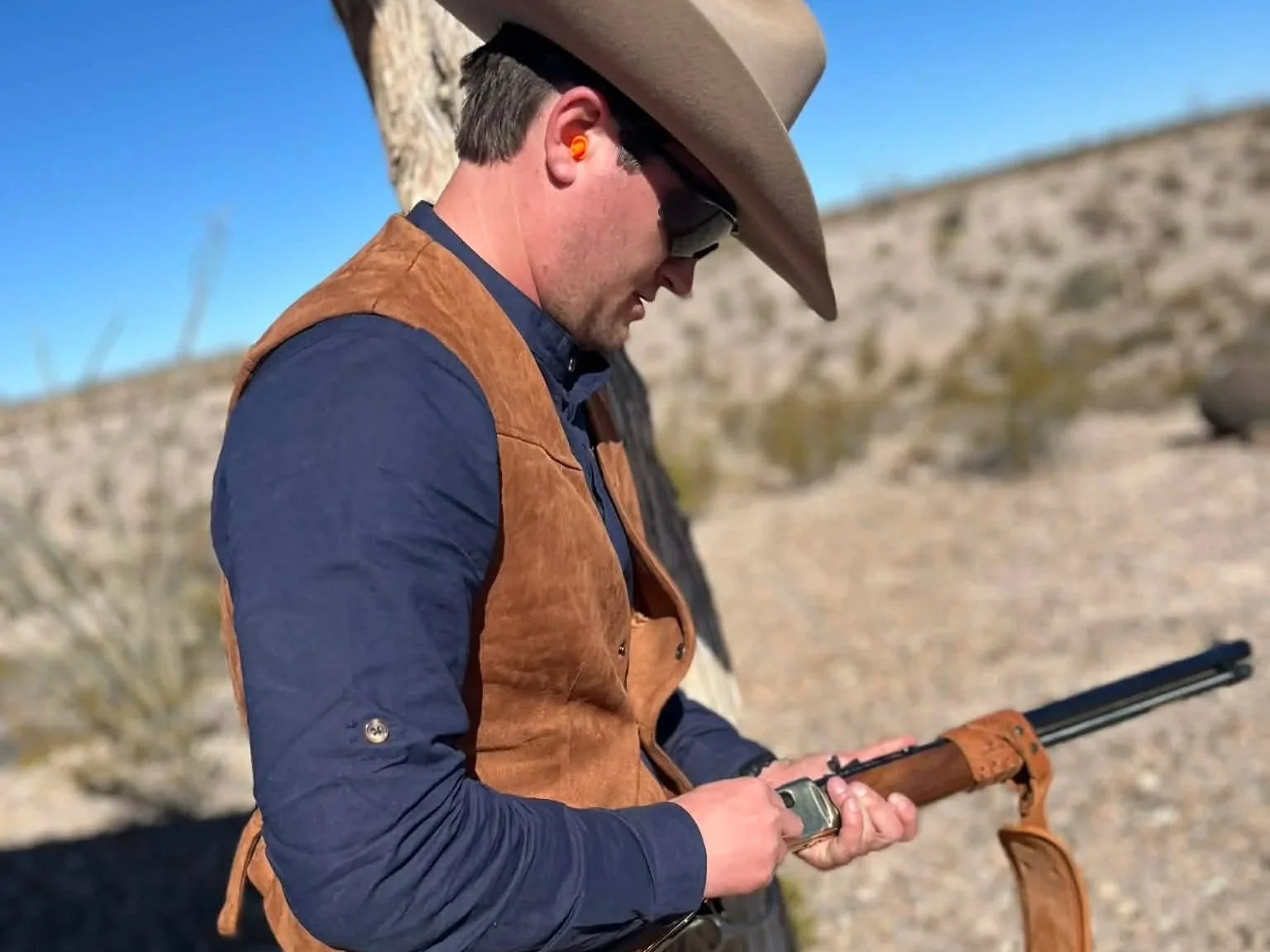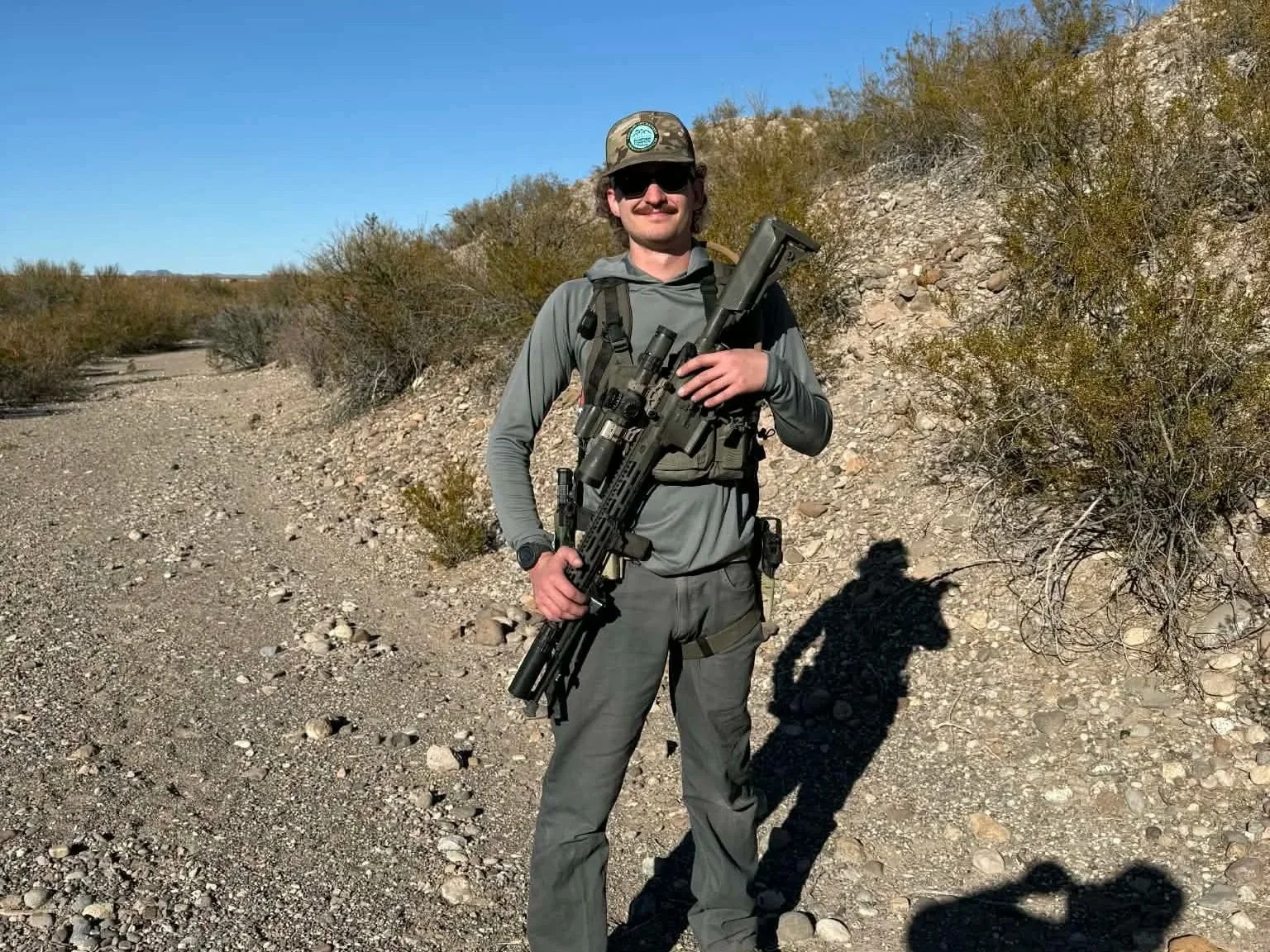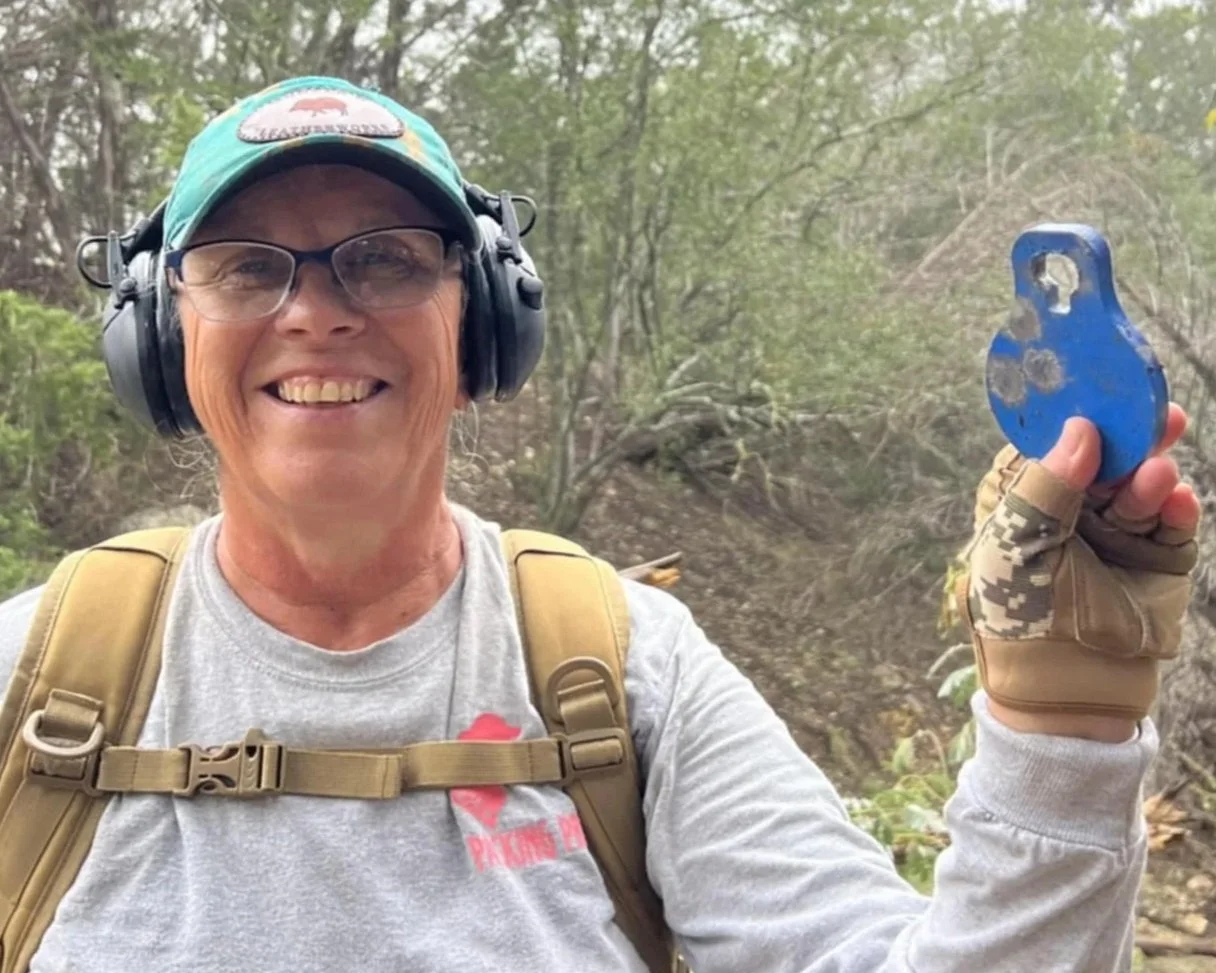Match Director and Range Masters
Lead Range Officers and Notable Staff
A big thank you to all the dedicated Range Officers who have continuously supported and assisted us throughout our events. You may not always be named or publicly recognized, but you are the true heroes behind the scenes of Mystery Ops! Your commitment and hard work make everything possible.
Mystery Operations Range Officer Vetting And Certification Process
Purpose
The intended purpose of this document is to outline and establish criteria and vetting systems for Range Officers (Hereafter RO’s) for Mystery Operations Run and Gun events (Hereafter MysOps). This document will create a structure by which volunteer RO’s will be selected and certified to work at MysOps events beginning in Fiscal Year 2026. This system will attempt to be unbiased and select RO Staff purely based upon individual merit and ability, as well as the desire of applicants to work towards and foster a culture of integrity and competitive equity through both individual/team words and actions.
Facts Bearing On The Problem
There exists a potential problem of the lack of process through which RO staff are selected for MysOps events. While in the past it has been common to adopt a staffing policy of “any willing, breathing human” as being potentially acceptable to staff MysOps matches. The MysOps competition series has grown to a point where increased vetting of staff is necessary to ensure events are competitively equitable as well as efficiently run. It has been demonstrated that at times RO staff have shown either an inability or unwillingness to perform duties essential to the smooth operation of events as well as contributing to potential errors and inequalities in the scoring and procedural standards to which they should hold themselves. Thus, the proposed system will create a process through which levels of RO certification are established, as well as specifying the duties and expectations of Match Staff.
Mystery Operations Range Official Certification Process
Certification of MysOps RO staff will be established through a multistep process through which MD and Rangemaster (Hereafter RM) will be able to vet, and verify the potential RO’s so as to ensure that staff selected are knowledgeable and competent to assume the duties and responsibilities to which they are assigned. This process will be conducted in the following order of operations.
Application
Interested applicants for Range Officer positions will fill out a questionnaire during application. Questions will be designed to establish the experience level the individual has within other Run and Gun (Hereafter RnG) organizations, or other competitive shooting sports disciplines, IE USPSA, IDPA, IPSC, PCSL, SASS, iCore etc. Questions will also include open ended questions meant to judge the ability of the individual to adapt to changing circumstances and situations which they might find throughout a MysOps event. See Appendix A for potential application questions.
MD and RM Review
Upon receipt of candidate application, MD will conduct a quorum with RM’s and select other trusted individuals as he sees fit to determine whether candidate vetting process should continue. If by either unilateral decision by MD or majority vote decision by MD, RM’s and others the conclusion is reached that the candidate is viable the next step in the process will be enacted.
Interview
Interviews will be conducted via either telephone or video conference with the candidate. Present will be MD, and or RM(s). The interview will be relatively informal, and consist of putting a “face to the name” and giving the candidate a chance to have any questions they might have answered, as well as providing the leadership team with the ability to further inquire with the candidate regarding their qualifications and interest.
Acceptance
If it is decided to proceed with the candidate by MD and RM staff they will be notified of their selection via email within 24 hours of a decision being reached.
Probationary Match
At the prospective RO’s first MysOps match, they will be assigned to work a stage with an experienced RO who will be able to demonstrate the conduct and behavior expected of MysOps RO staff, as well as educating Probationary RO (Hereafter PRO) on the scoring, and match procedure.
RM After Action
Following completion of “probationary match” MD and RM’s will consult with the Lead Range Officer assigned to instruct PRO. If the report is positive and all criteria for successful performance of duty has been met, the “Probationary” tag will be removed and RO status assigned. If it is deemed the PRO performed in an unsatisfactory manner, the PRO tag can be applied at forthcoming events, or the future RO services of the individual may be declined by MD.
Mystery Operations Range Staff Levels
Range Master
Reports Directly to the Match Director.
Ensures safety and competitive equity standards are met.
Handles any scoring and rules disputes with competitors and staff.
Can be overruled by the Match Director if necessary.
Oversees staffing and ensures that experienced staff are dispersed properly to ensure efficient match operation.
Revolves through stages ensuring that operations are being conducted in a manner that is acceptable to the wishes of MD.
1 to 3 RM’s may be present depending on size and scope of match. If not functioning as RM, designated individuals will work as LRO’s as needed.
Must be unquestionably qualified to serve as Rangemaster
Chosen at discretion of MD.
Lead Range Officer
Hereafter LRO
Is in charge of the individual stage, and responsible for maintaining smooth operation of stage throughout match.
Reports to Rangemaster
Ensures that Range Officers assigned to stage meet standards of performance as set by MD and RM.
Performs any and all duties to which they are needed.
This is not a purely supervisory role. While LRO is ostensibly “in charge” of the stage, the expectation is that LRO will lead by example and be willing to perform any and all tasks which are required to ensure the stage is run safely and equitably.
LRO status will be conveyed at the completion of 7th MysOps match worked as an RO or earlier at discretion of MD/RM. May be extended past 7 matches if decided by MysOps leadership as well.
Range Officer
Performs any duties necessary to ensure safe and equitable competition.
Reports to Stage LRO.
Range Officers Code of Conduct
● Perform any and all tasks required to ensure safe and competitively equitable event
● Be courteous and polite to competitors
● Hold oneself to the highest of moral standards
● Demonstrate integrity beyond question
● Help your fellow staff regardless of position
● Display excellent communications skills
● Be punctual and on time
● Your word is your bond
● Being a Range Officer is a privilege
Range Officer Duties
● Pre-Match
○ Ensure targets are painted, and correctly oriented.
○ Ensure Stage is set, and all necessary accessories and accouterments. are properly set up.
○ Ensure stage box contains med kit, written stage briefing.
○ Check that the shot timer and radio are charged and ready for use.
○ Report over the radio to headquarters that the stage is ready.
● During Match
○ Ensure competitor weapons are clear.
○ Collect scorecards from competitors.
○ Read written stage brief VERBATIM to competitors.
○ Collect wait time information and log on the scorecard.
○ Run shooter through the course of fire.
○ Ensure the weapon is clear and proceed to next shooter.
○ Maintain order and cleanliness of the stage.
○ Ensure the last runner is through the stage by verifying with Headquarters and other stages as necessary before initiating breakdown.
● Post Match
○ Pull targets as assigned by MD and RM.
○ PICK UP ALL BRASS FROM GROUND
■ Failure to do so may result in disciplinary action for Stage RO Team
○ Ensure stage area is returned to pre-event condition.
○ Call RM to inspect stage once complete
○ Return “Stage Box” and all equipment to Headquarters.
Appendix A
Range Officer Application Example
Background Information
Name:
Address:
DOB:
RnG/Shooting Sports experience:
Why do you want to be a Mystery Operations Range Officer?:
How did you hear about Mystery Operations?:
Open Ended Questions
You ask a competitor for their wait time and the answer is suspicious. What do you do?
A competitor blatantly displays unsafe weapons handling skills, what immediate actions do you take?
One of your fellow stage RO’s is doing demonstrably less work than anyone else. What do you do or say?
You notice a competitor drop their scorecard as they leave the stage. However you have competitors waiting to shoot. What, if any, action do you take?
References (Not Mandatory)
If you have any references who are presently Mystery Operations Range Officers, please list them here.
Appendix B
Administrative Notes
● Grandfathering Process
○ As Mystery Operations has existed for several years without an official RO certification system, a process must be put in place to post date certification for the existing RO Corps. All existing MysOps staff with at least 1 full match satisfactorily worked be appointed as full Range Officers.
○ Any RO with 8 or more matches be designated a Lead Range Officer provided concurrence of MD, RM’s and/or leadership group.
● Removal of Range Officer or Removal of Position
○ In the event that a Range Officer behaves in a manner that is deemed to be detrimental to the match, the competitors or the sport, at the discretion of the Match Director they may be removed from the list of Range Officials for a temporary or permanent period as well as face the loss of RM, LRO or RO title. Circumstances for reinstatement can be established by MD.
RO Instructions
-After Friday safety brief grab your stage gear. Gear should be numbered for your stage and includes:
-Medical Kit -Shot Timer -Radio -Clipboard with Backup Stats and Safety Brief -Brass Bags -Target Paint -Pens -Backup Stopwatch -Stage Diagram -Shade Canopy -Other Stage Specific Gear -Tarps
-If you think you might need something, ask for it. Check the trailer if you don’t see what you need. You should come prepared with your own chairs, snacks, drinks, and gear you like to work with.
-Roads are rough to some stages and may require 4x4 or even a UTV. If you cannot get to your assigned stage, grab a ride with a stage mate or we will give you one.
-Stages will be painted to start on Friday. Keep up with paint as it degrades. Paint at the end of Friday so its ready for Saturday morning. Again, keep up with paint as it degrades throughout the day. Its ok to shut down a stage to quickly paint to maintain the best competitive equality possible.
-If you are not familiar with the shot timers, ask someone who is or identify yourself after the brief. Once retrieving it from a pocket on the med kit, verify that the par time matches the stage par time. Familiarize yourself with the timer before a shooter arrives. Shot recording can be tested by clapping loudly.
-The shot timers need to be close to the gun to record shots accurately. This is even more important if the shooter is suppressed. Getting it close to the ejection port on semi-automatic weapons or as close to muzzle as safe on bolt guns if they are suppressed helps. The sensitivity can also be adjusted but beware increased sensitivity can record other loud noises such as bolts slamming when clearing weapons.
-Holding shot timers by the sides carefully after hitting start will minimize malfunctions caused by human error. Putting it in a pocket or dangling around your neck is a recipe for malfunctions. Glancing at the shot timer intermittently after the beep is important to know if it is working right. This is especially important for suppressed guns near the end of the stage course of fire.
-If a time was not recorded at the end, or the stage needed to be paused and time recorded, then a quick tap on the body of the timer should record a shot. Test this before you need it. If you end up needing to use this technique, give the shooter an estimated time deduction that it took from the last shot and when you got it to record a time.
-Keep the timers out of the sun and in the shade. Turn it off when there are long breaks between shooters. This should prolong battery life to last the day. If it dies, use the backup stopwatch or your phone.
-If the timer completely fails to record a time for the shooter, a reshoot is optional if the shooter has enough ammo to do so. If any discrepancies, they go to the shooter. Taking care in usage as described above should prevent shot timer failure.
-Record times accurately and legibly on competitors score cards and backup stat sheets. Pay attention to using correct time formats as designated. Any applicable penalties and bonuses can be marked as +/- the time value next to the raw shoot time.
-Bring the shot timers and radios back to HQ each day so they can be charged for the next. After the final day, return everything other than brass, paint, and shade canopies to HQ. Brass and shade canopies can be staged next to the trailer.
-DO NOT LEAVE BRASS. Pick up brass as the day progresses during lulls between shooters. Especially if you’re on one of the last stages. Do not assume you will have time to get it all before Saturday awards. If you’re on an early to middle stage, you will have plenty of time to get it all. The Match Director and cleanup crew do not want to pick up your brass on Sunday.
-Once the last shooter for the final day has shot your stage collect all targets, target hangers, tee posts, stands, and trash. Transport everything back to the trailer if you have room. If you do not have room, stage everything in a neat pile as close a road as possible.
-After pulling targets, pull all flagging and signage down from your stage to the next. Grab everything run and gun related you can see that is not needed for shooters to finish the course.
-As stages finish, RO’s from early stages will trickle down to help the next stage pickup brass and targets. By the time the final stage finishes, there should be a horde of RO’s ready to help them. Do not come back to HQ to hang out while other RO’s are still working. We start as a team and finish as a team.
-Many hands make light work. The match director and his small crew worked all week to set things up. Tearing down and cleanup is very quick if everyone does their part. Leaving the property better than we found it ensures that we are welcome back. THANK YOU!
-In appreciation for your time and work breakfast and lunch will be provided on Saturdays. Dinner may be provided on Friday or Saturday night, depending on the event.
Medical
-Stay hydrated. If you’re not already hydrated, good luck. Always carry and drink more water than you think you will need. If you suspect you're suffering from heat exhaustion or an injury, inform the closest range officer at a stage and wait there for transportation. If you're between stages and can't continue, remain on the course and ask the next passing runner to notify a range officer immediately. As a runner, if you encounter someone who appears to be struggling, make sure to check on them. Competitors who are at risk of heatstroke or injury but unwilling to quit may be pulled by staff.
-There is a medical kit at every stage, but everyone should be self-sufficient. A personal tourniquet is required for every range officer and competitor, and it is strongly recommended to have additional trauma care supplies.
-In an emergency, provide immediate assistance, notify the Match Director, Lead Medic, and declare a ceasefire on all stages. Call 911 only if cannot reach MD/Medic or if there is a severe emergency. Remain in place and limit radio communication to essential traffic only. Competitors between stages should proceed to the next stage and begin their wait time upon arrival.
-If the patient is stable and can be moved, transport to Med Vac location for ambulance. If the patient is not stable, remain on location, continue care, and give coordinates to EMS. Uninvolved and available bystanders move to Med Vac location to flag down the ambulance.
-Radios are already programmed and locked. Do not mess with the settings. If an emergency, cut traffic to only needed.
Match Admin Rules
-Treat everyone with respect. We are here because it is fun. Don’t be rude and ruin a good time. Range Officers and Competitors included.
-Competitors should load their magazines and ready their equipment before reaching a stage or during wait time. When it's their turn to shoot, they may only load their weapons if the stage design permits. The only designated safe area for loading and unloading weapons is the stage itself on Range Officer Command. Any gear admin needing done after stepping up to shoot will be done on stage time. No time will be given for ammo and optics checks.
-Shooting aids, such as bags, bipods, tripods, etc. must be deployed after the beep from a fully collapsed or carry position. Any gear used on the stage must be physically maintained by the shooter unless it is no longer needed. Anything that is left unattached to the shooter is lost for remainder of stage. Range Officers will not let you get it back.
-Stage briefs will be given uniformly and fairly by Range Officers. If YouTube stage previews and stage diagrams are available, the Range Officer will give a very limited verbal brief if one at all. They may answer basic questions with yes or no. Questions meant to give a competitor an advantage over others will not be entertained. If there is no wait time, stage brief study is on the competitor’s time. If there is a line to shoot, Range Officers will give one briefing to the group. After that, no further brief will be given or questions answered. When it’s your turn to shoot, be ready to step up and follow RO commands. Wait time in unavoidable but can be better mitigated this way.
-No time will be allotted by range officers to for competitors to range targets. Nor will questions on target distance and size be fielded unless the information is part of the stage diagram. If targets are visible from anywhere on the course or staging areas, they may be ranged on competitor run time or wait time. If staging areas are designed to be truly blind, range finders are not permitted to ensure fairness. Sneaking a peak through a rangefinder when moving from staging area to the start position on a blind stage will be a stage DNF. Sneaking outside of the designated staging area or course to range targets on a blind stage will be a match DQ. You are always permitted to use rangefinders during the stage shoot time.
-Range officers will call hits on rifle targets and pistol targets that are not obvious. If a competitor can shoot faster than RO’s can keep up calling hits, they do not need to wait for a hit to be called to move to the next. If an RO believes you need another hit on a target, just shoot it again. Arguing about hits only burns up your stage time. If an RO calls a shot as a hit but it was not, it counts as hit. No take backs.
-Coaching is limited to only struggling shooters. Competitors who are showing an effort to shoot the stage as briefed but have become uncompetitive in time will be deemed to be struggling. At that point, Range Officers may coach shooters in target locations, number of hits, shooting positions, and miss impacts at their fair discretion. However, they are not required to help. Playing stupid or poor attitudes will not be tolerated by Range Officers. Youth may be coached by their guardians if it does not interfere with Range Officer duties.
-Miss impacts for targets designated as Extreme Long Range (ELR) will be called by Range Officers to the best of their abilities as if they were sniper spotters. ELR targets are defined as targets outside of the maximum effective range of the usual weapon platform used. The estimated ELR distance will be from 300-500 yards and beyond, subject to Match Director decision.
-During the stage, all targets must be engaged and neutralized as per the stage/match requirements. Generally, circle gongs and quadrilaterals require one hit, silhouettes and aliens require two hits, and cardboard is two hits. Spinners must be spun over. Requirements may differ from match to match and stage to stage.
-Not completing the stage within the Par time results in a DNF (Did Not Finish). Shooters with a DNF will have their targets failed to neutralize (FTN) tallied and recorded to earn partial points. Should a shooter miss a stage or deplete their ammunition and be unable to fire, they will incur a DNF along with all the FTNs for that stage. Spinners are worth 4 FTNs if not spun over. Two hit targets are worth 2 FTNs if not hit at all, but only 1 FTN if only hit once.
-Shooters who are having difficulty hitting a target(s) before the stage ends may bypass it to proceed to other targets. Should time permit and it is safe, they may return to engage the missed target(s). Completing the stage under Par without revisiting the target(s) results in a DNF, plus the count of FTNs. Due to the various skill levels of shooters, advanced stages may have a litmus test to be passed before moving on to more complicated portions of the stage. These tests may not be skipped.
-When a shooter reaches a stage and there is a line, they may begin their wait time after presenting a clear rifle to a Range Officer. It is the responsibility of the shooters to monitor their own wait time accurately on a stopwatch or phone and to remain honest. Range officers may challenge and override questionable times. Playing games with range officers over wait time will result in denial of wait time. If there is nobody shooting the stage, you will get no wait time.
-After completing a stage and upon the range officer command, shooters should promptly exit the stage. Collect your gear and leave. Further gear administration should be done on your own time, not the range officer's or other competitor’s. Stage time is included as part of your run time.
-Score cards will be issued as the competitor leaves on the course. Recording start/stop time, wait time, stage time, and failures to neutralize (FTN’s) will only be done by Range Officers. Competitors will be responsible for maintaining an all-weather paper card throughout the course. Range Officers should keep back up stats on a clipboard, but don’t depend on it. Due to possible short staffing and more important obligations, Range Officers may not record your data properly or at all. You are responsible for making sure your data is right. Your card must be turned in to receive a score. Cards not turned in will be assumed as a disqualification.
-The use of steel core penetrating ammunition is strictly forbidden. Possession or use during shooting events will lead to immediate disqualification from the match. The primary example of such ammunition is the M855/SS109 5.56 with a green tip. However, bi-metal thin steel jacketed bullets, such as those made by Wolf, Tula, etc., are permitted.
-Firearms: Mystery Operations organizes events that cater to a variety of firearms. Each event is governed by specific guidelines detailing permissible equipment; please consult the provided information and the event CONOPS for details. While we acknowledge that certain calibers and types of firearms may offer an unfair advantage, we also recognize their inherent disadvantages and affirm that shooter skill is the primary determinant of performance. As an "outlaw" match, Mystery Operations is not bound by the rules of any other competitive shooting authority. All firearms must comply with federal legislation. Any shooting aids and equipment not explicitly mentioned are permitted.



